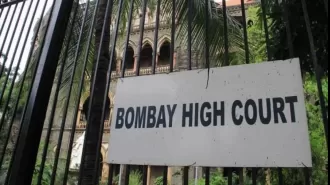The National Testing Agency functions in the following way.
NTA faces criticism for alleged exam irregularities. Changes in leadership and a review of operations are underway amid ongoing controversy.
June 27th 2024.

New Delhi: The National Testing Agency (NTA) has recently come under scrutiny due to allegations of misconduct in the competitive exams it conducts. With the ongoing controversy surrounding the NEET-UG and UGC-NET exams, the agency has undergone a change in leadership and a special committee has been formed to review its operations. To better understand the workings of this seven-year-old organization, here is an explanation of its background:
When was NTA established?
The NTA was established in 2017 as an independent and self-sufficient testing body under the Ministry of Education, formerly known as the Ministry of Human Resource Development. It is registered as a society under the Societies Registration Act, 1860 and is governed by the Right to Information Act.
Before the NTA was formed, various government bodies such as the University Grants Commission, the Central Board of Secondary Education, and central universities like Delhi University and Jawaharlal Nehru University were responsible for conducting their own exams.
When was NTA envisioned?
The idea for the NTA can be traced back to the Programme of Action in 1992, which was related to the National Education Policy of 1986. This policy recommended the creation of a national-level exam agency.
In 2010, a committee consisting of directors from Indian Institutes of Technology (IITs) suggested establishing the NTA through legislation in order to ensure its autonomy and transparency. It was modeled after the Educational Testing Service (ETS) in the United States.
The NTA was officially announced in 2017 and received cabinet approval shortly after. Vineet Joshi was appointed as the first Director General, who currently serves as the Chief Secretary of Manipur. His successor, Subodh Kumar Singh, was recently removed from his position.
Which exams does NTA conduct?
The NTA conducts three major undergraduate entrance exams: JEE-Main for Engineering, NEET-UG for medicine, and CUET-UG for admission to various other undergraduate courses. These three exams alone see over 50 lakh candidates every year.
In addition, the NTA also conducts exams such as CUET-PG for postgraduate admissions, UGC-NET, and CSIR UGC-NET.
UGC-NET is a test to determine eligibility for junior research fellowships, appointment as an Assistant Professor, and admission to PhD programs in Indian universities and colleges.
CSIR UGC-NET is accepted for PhD admissions in Chemical Sciences, Earth, Atmospheric, Ocean and Planetary Sciences, Life Sciences, Mathematical Sciences, and Physical Sciences.
Other exams conducted by the NTA include the Common Management Admission Test, Hotel Management Joint Entrance Examination, Graduate Pharmacy Aptitude Test, as well as entrance tests for Delhi University, Jawaharlal Nehru University, Indian Institute of Foreign Trade, and Indian Council of Agricultural Research.
Why is NTA currently at the center of controversy?
The NTA has received significant criticism this year after granting grace marks to 1,563 candidates in NEET to compensate for lost time due to delays at seven exam centers. Several pleas were filed in the Supreme Court alleging inflation of marks, resulting in a record 67 candidates sharing the top rank. The grace marks were later revoked and a retest was conducted for these candidates.
In addition, the question paper for the medical entrance exam was allegedly leaked, as revealed by an investigation by the Bihar Police. UGC-NET was also cancelled a day after it was conducted due to concerns about the integrity of the exam. The Ministry of Education confirmed that the exam paper had been leaked on the darknet. As a precautionary measure, CSIR UGC-NET was also postponed.
Previously, the NTA had come under scrutiny for a series of technical issues during the first edition of CUET-UG.
How does NTA select exam centers?
For pen-and-paper public exams, the NTA chooses test centers from a list of existing centers. This list includes government schools that have successfully conducted exams for bodies like CBSE and NTA in the past without any issues or malpractices.
If the initial list of centers is insufficient, the NTA can also enlist institutes and colleges recognized by the All India Council for Technical Education (AICTE). Even schools or higher education institutions that have previously conducted exams for the NTA must give their consent every year. This process takes place on the NTA's dashboard, where the complete list of test centers is uploaded and centers must agree to hold an exam on the NTA's behalf.
What is the current focus of the NTA?
At present, the NTA is focused on releasing the results of CUET-UG on time, as the academic calendar of universities depends on it. The agency is also working on rescheduling UGC-NET and announcing a new date for CSIR-UGC NET.
Following the removal of Subodh Singh as DG, Pradeep Singh Kharola, Chairman of the India Trade Promotion Organisation (ITPO), has been given additional charge of the post.
A high-level panel appointed by the central government will make recommendations on reforms to improve the exam process, strengthen data security protocols, and evaluate the structure and functioning of the NTA. The panel is expected to submit its report within two months.
PTI
When was NTA established?
The NTA was established in 2017 as an independent and self-sufficient testing body under the Ministry of Education, formerly known as the Ministry of Human Resource Development. It is registered as a society under the Societies Registration Act, 1860 and is governed by the Right to Information Act.
Before the NTA was formed, various government bodies such as the University Grants Commission, the Central Board of Secondary Education, and central universities like Delhi University and Jawaharlal Nehru University were responsible for conducting their own exams.
When was NTA envisioned?
The idea for the NTA can be traced back to the Programme of Action in 1992, which was related to the National Education Policy of 1986. This policy recommended the creation of a national-level exam agency.
In 2010, a committee consisting of directors from Indian Institutes of Technology (IITs) suggested establishing the NTA through legislation in order to ensure its autonomy and transparency. It was modeled after the Educational Testing Service (ETS) in the United States.
The NTA was officially announced in 2017 and received cabinet approval shortly after. Vineet Joshi was appointed as the first Director General, who currently serves as the Chief Secretary of Manipur. His successor, Subodh Kumar Singh, was recently removed from his position.
Which exams does NTA conduct?
The NTA conducts three major undergraduate entrance exams: JEE-Main for Engineering, NEET-UG for medicine, and CUET-UG for admission to various other undergraduate courses. These three exams alone see over 50 lakh candidates every year.
In addition, the NTA also conducts exams such as CUET-PG for postgraduate admissions, UGC-NET, and CSIR UGC-NET.
UGC-NET is a test to determine eligibility for junior research fellowships, appointment as an Assistant Professor, and admission to PhD programs in Indian universities and colleges.
CSIR UGC-NET is accepted for PhD admissions in Chemical Sciences, Earth, Atmospheric, Ocean and Planetary Sciences, Life Sciences, Mathematical Sciences, and Physical Sciences.
Other exams conducted by the NTA include the Common Management Admission Test, Hotel Management Joint Entrance Examination, Graduate Pharmacy Aptitude Test, as well as entrance tests for Delhi University, Jawaharlal Nehru University, Indian Institute of Foreign Trade, and Indian Council of Agricultural Research.
Why is NTA currently at the center of controversy?
The NTA has received significant criticism this year after granting grace marks to 1,563 candidates in NEET to compensate for lost time due to delays at seven exam centers. Several pleas were filed in the Supreme Court alleging inflation of marks, resulting in a record 67 candidates sharing the top rank. The grace marks were later revoked and a retest was conducted for these candidates.
In addition, the question paper for the medical entrance exam was allegedly leaked, as revealed by an investigation by the Bihar Police. UGC-NET was also cancelled a day after it was conducted due to concerns about the integrity of the exam. The Ministry of Education confirmed that the exam paper had been leaked on the darknet. As a precautionary measure, CSIR UGC-NET was also postponed.
Previously, the NTA had come under scrutiny for a series of technical issues during the first edition of CUET-UG.
How does NTA select exam centers?
For pen-and-paper public exams, the NTA chooses test centers from a list of existing centers. This list includes government schools that have successfully conducted exams for bodies like CBSE and NTA in the past without any issues or malpractices.
If the initial list of centers is insufficient, the NTA can also enlist institutes and colleges recognized by the All India Council for Technical Education (AICTE). Even schools or higher education institutions that have previously conducted exams for the NTA must give their consent every year. This process takes place on the NTA's dashboard, where the complete list of test centers is uploaded and centers must agree to hold an exam on the NTA's behalf.
What is the current focus of the NTA?
At present, the NTA is focused on releasing the results of CUET-UG on time, as the academic calendar of universities depends on it. The agency is also working on rescheduling UGC-NET and announcing a new date for CSIR-UGC NET.
Following the removal of Subodh Singh as DG, Pradeep Singh Kharola, Chairman of the India Trade Promotion Organisation (ITPO), has been given additional charge of the post.
A high-level panel appointed by the central government will make recommendations on reforms to improve the exam process, strengthen data security protocols, and evaluate the structure and functioning of the NTA. The panel is expected to submit its report within two months.
PTI
[This article has been trending online recently and has been generated with AI. Your feed is customized.]
[Generative AI is experimental.]
0
0
Submit Comment





